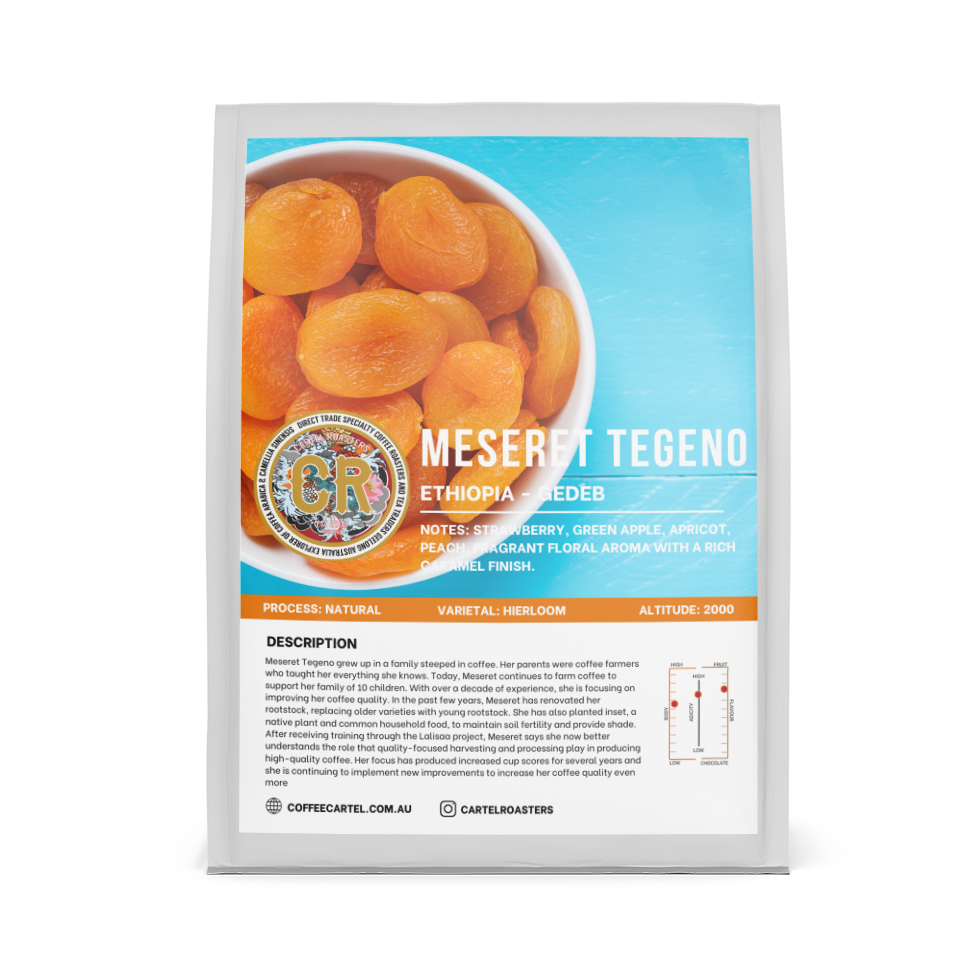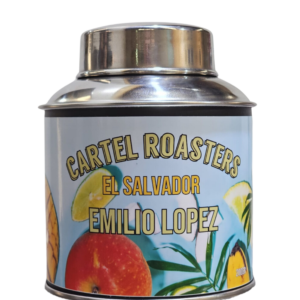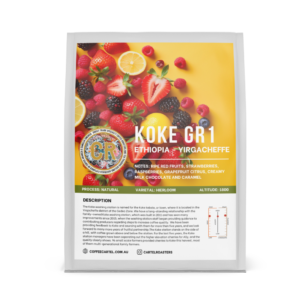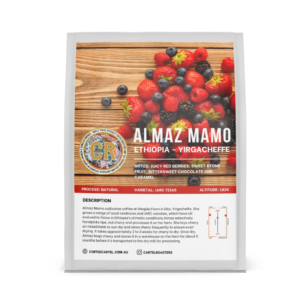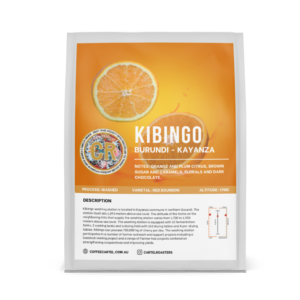About this coffee
- Altitude: 2050
- Farmer: MESERET TEGENO LALISAA
- Score: 87.5
- COUNTRY: ETHIOPIA - GEDEB
NOTES: STRAWBERRY, GREEN APPLE, APRICOT, PEACH, FRAGRANT FLORAL AROMA WITH A RICH CARAMEL FINISH.
Meseret Tegeno grew up in a family steeped in coffee. Her parents were coffee farmers who taught her everything she knows. Today, Meseret continues to farm coffee to support her family of 10 children. With over a decade of experience, she is focusing on improving her coffee quality.
In the past few years, Meseret has renovated her rootstock, replacing older varieties with young rootstock. She has also planted inset, a native plant and common household food, to maintain soil fertility and provide shade.
After receiving training through the Lalisaa project, Meseret says she now better understands the role that quality-focused harvesting and processing play in producing high-quality coffee. Her focus has produced increased cup scores for several years and she is continuing to implement new improvements to increase her coffee quality even more
Lalisaa is a term used to describe something that is flourishing and growing. Our Lalisaa coffees, initiated by Sucafina staff through the Farmer Hub initiative, began with the recognition that the supply chain in Ethiopia was failing to benefit smallholder farmers or reward them for producing quality coffee.
The program encourages strong growing practices, rewards the production of quality coffee and helps farmers take control of their part of the supply chain by partnering directly with smallholders.
New farmers are onboarded each year for a training program that is intended to help farmers improve yields and quality while also accessing new markets and financial services. Farmers in the program participate in a wide range of activities including designing, and later revising, a farm management plan, accessing financing for larger farm projects and more.
Currently, Lalissa is compromised of 97 farmers located within the acclaimed coffee producing regions of Kochere, Gedeg, Yirgacheffe, Shakiso, Bule Hora and Sidama. In addition to working with farmers to improve quality and yield, Sucafina Ethiopia is, through Lalisaa, making introductions between roasters and farmers. By bringing roasters to visit farmers and begin discussions, Lalisaa coffees are helping make connections and developing relationships between farmers and their potential clients. This will enable direct trade relationships that can benefit both farmers and roasters.
Gedeb, a district named for its largest town, in the Gedeo Zone in largely agrarian. According to a 2007 census, about 11% of the population lived in urban areas. The rest of the population lives in rural areas and are predominately subsistence farmers. Families typically farm small plots of land near their homes and intersperse food crops with coffee and other cash crops.
The majority of coffees grown in Gedeb are local landrace varieties (which are often also called Ethiopian heirloom). Other varieties grown in the region were developed by the Jimma Agricultural Research Centre (JARC). JARC is an important research center for Ethiopia and has done a great deal of work on developing disease resistant and high yielding varieties that still demonstrate quality in the cup.
Most farmers in the region farm on fewer than 5 hectares (many counting their coffee farms in terms of trees rather than area). Cultivation methods are traditional for the most part, with coffee being grown as part of an integrated ‘coffee garden,’ intercropped with other food crops.
Coffee still grows wild in Ethiopia’s mountain forests. Ethiopian farmers cultivate coffee in four different systems, which include forest coffee, semi-forest coffee, garden coffee and plantation coffee. About 98% of the coffee in Ethiopia is produced by peasants on small farms and it is the country’s most important export. Ethiopia is Africa’s third largest coffee producer. There are about 700,000 coffee smallholders in Ethiopia, of which 54 percent are in semi forest areas. Coffee has been part of their indigenous cultural traditions for more than 10 generations.
Coffee is traded on the Ethiopian Commodities exchange (ECX) which unique to many other countries sets its own prices. Ethiopia Produced 7.1 Million Bags of Coffee in 2017-2018. Most Ethiopian Coffee goes to Germany and Saudi Arabia (about 20% Each) while Australia takes 2%. While most coffee does go through the ECX, reforms recently passed by the government have allowed larger farms and co-ops to market and sell their coffees directly to consumers, resulting in increased traceability and fairer pricing
It’s in my hand as I write. A gorgeous double shot flat white of this glorious bean. Honestly, you’ve got to go a long way to better Cartels offering.

